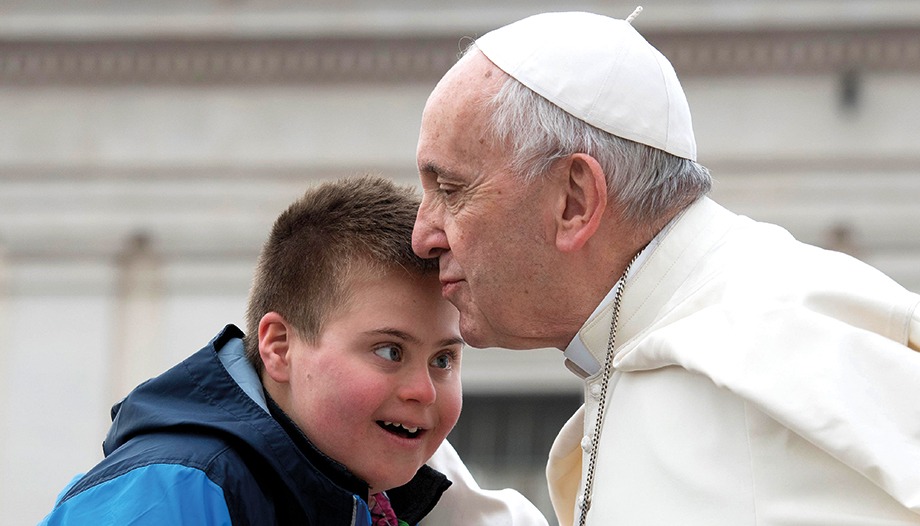One of the real pending issues for the Church is undoubtedly that of the pastoral integration of women in the people with disabilities. Although steps are being taken, in specific communities and almost always encouraged by the presence of people with various disabilities, physical or intellectual, the reality is that the care of these people, especially in the field of intellectual disability is still scarce and little worked.
A few months ago, as part of the Synodal itinerary, the Dicastery for the Laity, the Family and LifeThe General Secretariat of the Synod, in agreement with the General Secretariat of the Synod, invited some thirty people with disabilities from five continents to contribute their diverse experiences to the Synod. From their contributions and reflections was born the document The Church is our home. This document made explicit the need for "distance themselves from certain ideas that have marked the Church's approach to this question. The first is that of those who saw in it the result of guilt; the second is that of those who thought that the disabled were somehow purified by the suffering they experienced and, therefore, somehow closer to the Lord".
This was compounded by the fact that pastoral interest has been centered on "mainly in the families or in the care institutions that cared for them" historically.
The Church is our home courageously calls for a change of mentality in the Church: to recognize, truly recognize, that "The Lord has assumed in himself everything, but truly everything that belongs to concrete and historical humanity, in all its possible declinations, those of every man and every woman, including disability".
Many people with disabilities are part of our communities. In the case of intellectual disabilities, it is even more noticeable that the lives of these people are respected to a greater extent in faith communities. However, there is still a long way to go.
Faith is in the air at home
María Teresa and Ignacio know a lot about living the faith with people with disabilities. They have seven children, one of whom, Ignacio, has a mild intellectual disability and the youngest, José María, was born with Down syndrome. Their experience underlines the idea expressed in the document The Church is our home when he affirms that the experience of faith with people with disabilities "can help overcome the idea that it is our intellectual capacity that generates friendship with Jesus."
In fact, Maria Teresa points out that "People with disabilities have a much broader and cleaner capacity to grasp transcendence than others, including parents". However, a different and adapted language is needed, which in general is not available. In fact, explains María Teresa, "a lot of people are doing it on their own".
This mother of two children in need emphasizes that "Many times we find that young people are treated like little children, and that cannot be. Each one has a different need for formation, a different expression of their faith. We have to accompany them so that they reach the same point as the others by the path they need. For example, through easy reading. It is not a question of lowering concepts but of how they are exposed and not, because they are more accessible, less serious. We can explain the Trinity or the conversion of bread and wine into the Body and Blood of Christ in such a way that they can understand it and we don't need to put little drawings of a small child to a guy of 24 years old", concludes forcefully.
His affirmation joins the request of these people for "overcome any paternalistic attitude towards those who experience a disabling condition and overcome the idea that we should be taken care of exclusively", in the document of the Dicastery, which qualifies as "urgent a change of mentality that helps to capture the potential of each one."
As stated by The Church is our home: "A paradigm shift is needed that starts from a theological deepening capable of making explicit in a clear and forceful way the dignity of the person with disabilities as equal to any other human being, promoting their full participation in the life of the Church".








